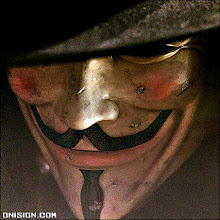The word euthanasia has often been described as a merciful killing to better relieve a person of the pain and anguish forced upon them from illness, therefore leading one's family to grieve with the knowledge that the said person is no longer in pain. Often, people question the mercy of the death, perceiving that anaesthetics are far from merciful and prevent a person from offering last words of comfort to their families, whether that is due to a state of unconsciousness or the mind being numb to the point where it no longer has the capabilities to speak with true meaning. For most people, it is not a question of the method that is used but a question as to what man has a right above another human life?
The definition of euthanasia, as stated by one website, is the humane destruction of an animal accomplished by a method that produces rapid unconsciousness and subsequent death without evidence of pain. In truth, there are a number of forms of pain that fail to be recognized; physical pan is the one which seems to be said to not exist, however, emotional and spiritual pain can form to, therefore, dishearten a man. One of the words used to describe euthanasia is destruction and thus it should be perceived that it is wrong due to the sociological perception of culture that, destruction, as a word, has a negative meaning in its connotation. As a reference and as evidence, it is often described that terrorist bombings are destructive, meaning that it has detrimental effects, as does murder, which is often described as a destructive act of mankind upon another.
Perceiving that murder is wrong because it is destructive, should it not also be perceived as true that euthanasia is wrong because it is the termination of a life which no man except the said person has control over? Murder, in its definition, is the premeditated act of killing with intention. Euthanasia, in its definition, is premeditated because a doctor deems it appropriate that the decision is final and it is not a sudden decision, similarly, it has the intention of relieving pain, which despite the good morals within it, should not be considered a reason to terminate a life. If euthanasia were to be considered moral because it relieves pain, could a murderer also state that he was relieving pain from the one he killed? The principle remains the same.
As seen in the past, doctors have often misused their positions, as have care workers and the likes of, and thus it could be considered an immoral act if a doctor were to be given the right of euthanasia above another life. Doctors are, as we are, humans and can often make mistakes or abuse the position which has been bestowed upon them and euthanasia could be a method of doing so which would have detrimental effects, not only upon the doctor and the terminated life, but also on families and the social structure of life. Laws would be applied to prevent the misuse of such a method but, as often seen, laws are but guides and it is free will that controls life. Laws cannot guide a doctor into making the decision as to whether to terminate a life or not; what regulations would be applied or which specifications would be needed to end a life? Could a doctor not state that all said specifications were met to help meet a hospital's targets?
Analyzing the religious aspects of euthanasia, some would perceive that it is an act of God to terminate a life, as He himself as a plan for each life upon the Earth and thus, if euthanasia were to be legalized, it would be considered an attempt at playing God' because it is ignoring the will of God. Whilst, to some, it would be of little relevance, those of a religious nature would perceive it as offensive and would also consider it to be the abandonment of God in hospitals. Some would believe that God would heal' those people and thus euthanasia would be a lack of faith and have no true benefits to the person or the family. If a doctor were to begin playing God', what other matters of life could a person have an effect within and therefore unbalance the nature and society of life?
Some would believe that it could be a tantamount to other crimes. Some would perceive it as immoral. For the most part, however, it is considered wrong because no defined specification would help a doctor to make such a decision and, as each person's case is different, the specification would change accordingly. Most would state that none have a right above another life and that there is no true mercy in it as the person has not made the decision themselves. The question, if one were to be perceive euthanasia as ethical is, when does it stop becoming merciful and start becoming murder?




No comments:
Post a Comment